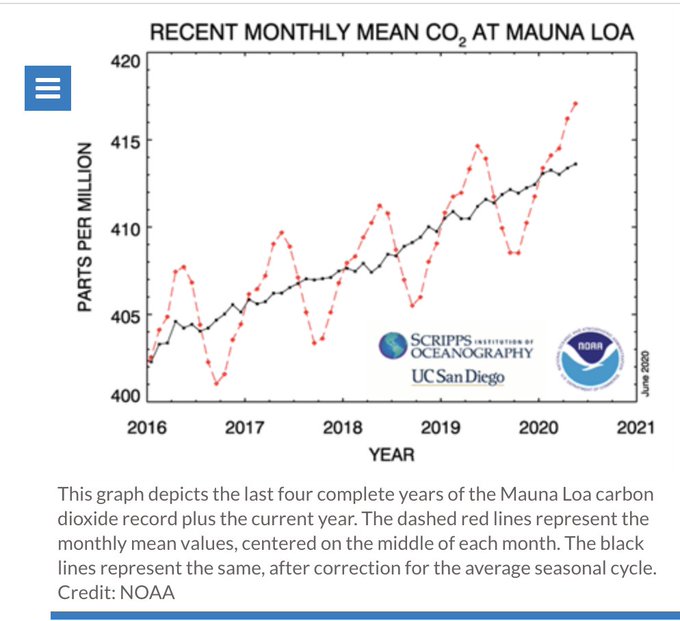
WMO/Tapio NiemiLate September sunrise as seen from Paalijärvi observation tower in Alajärvi, Finland. May 2020, was the warmest on record, UN weather agency WMO has confirmed.
Last month was the warmest May on record and carbon dioxide levels also hit a new high despite the economic slowdown from COVID-19, the World Meteorological Organization (WMO) said on Friday, in an urgent appeal for Member States to renew their efforts to tackle climate threats.
“Governments are going to invest in recovery, and there’s an opportunity to tackle the climate as part of the recovery programme”, said WMO Secretary-General Petteri Taalas.World Meteorological Organization✔@WMO
#WorldEnvironmentDay shows need for more #ClimateAction after #COVID19
We just had warmest May on record, per @CopernicusECMWF
CO2 at Mauna Loa observing station reached
a new record seasonal peak of 417.1 parts per million for 2020 in May
Details https://bit.ly/2XA9PcX

Opportunities ahead
He added that if this course of action was taken, “there was an opportunity to start bending the curve (on emissions) in the coming five years”.
The appeal coincides with World Environment Day, celebrated annually on 5 June, and a warning that warmer temperatures and higher greenhouse gas concentrations will have a major impact on biodiversity, socio-economic development and human well-being.
Echoing the call that it is time to grow back greener and build back better for people and the planet, UN Secretary-General António Guterres said that Nature was “sending us a clear message: we are harming the natural world – to our own detriment. Habitat degradation and biodiversity loss are accelerating.”
Climate and coronavirus
“Climate disruption is getting worse. Fires, floods, droughts and superstorms are more frequent and damaging,” said the UN chief. “Oceans are heating and acidifying, destroying coral ecosystems. And now, a new coronavirus is raging, undermining health and livelihoods. To care for humanity, we must care for nature.”
Any industrial and economic slowdown from COVID-19 is no substitute for sustained, coordinated action to reduce greenhouse gas emissions, Mr Taalas explained.
This is because gases such as carbon dioxide and methane last in the atmosphere for hundreds of years, so any short-term effects seen during lockdown is not expected to have a long-term benefit.